Atal Bihari Vajpayee: A Life In Pictures
Atal Bihari Vajpayee was an Indian politician who thrice served as the Prime Minister of India, first for a term of 13 days in 1996, for a period of eleven months from 1998 to 1999, and then for a full term from 1999 to 2004. Atal Bihari Vajpayee was among the founding members of the erstwhile Bharatiya Jana Sangh which he also headed from 1968 to 1972. He was the Minister of External Affairs in the cabinet of Prime Minister Morarji Desai. He was conferred India's highest civilian honour, the Bharat Ratna, by the President of India in 2015.It was declared by the Modi government in 2014 that Vajpayee's birthday, 25 December, would be marked as Good Governance Day.
-
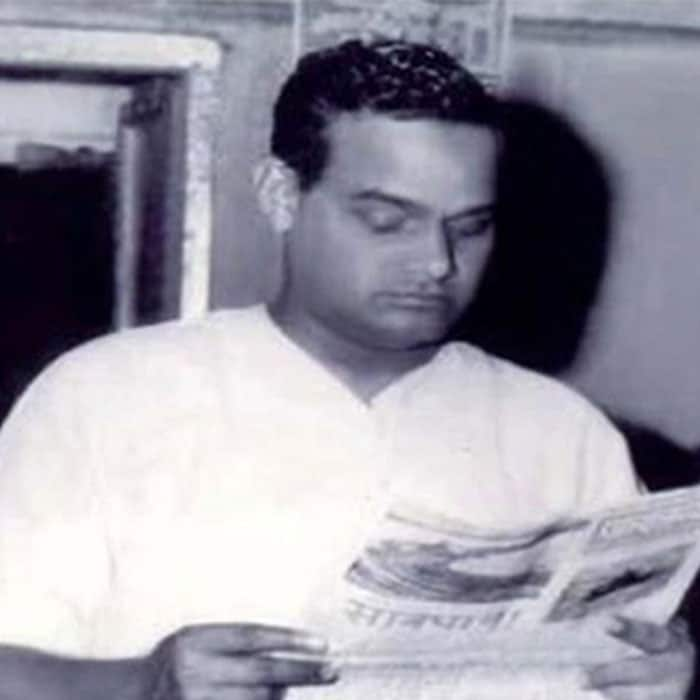 Atal Bihari Vajpayee was born on December 25, 1924 in Gwalior, Madhya Pradesh to Krishna Bihari Vajpayee and Krishna Devi. His father was a poet and schoolmaster.
Atal Bihari Vajpayee was born on December 25, 1924 in Gwalior, Madhya Pradesh to Krishna Bihari Vajpayee and Krishna Devi. His father was a poet and schoolmaster. -
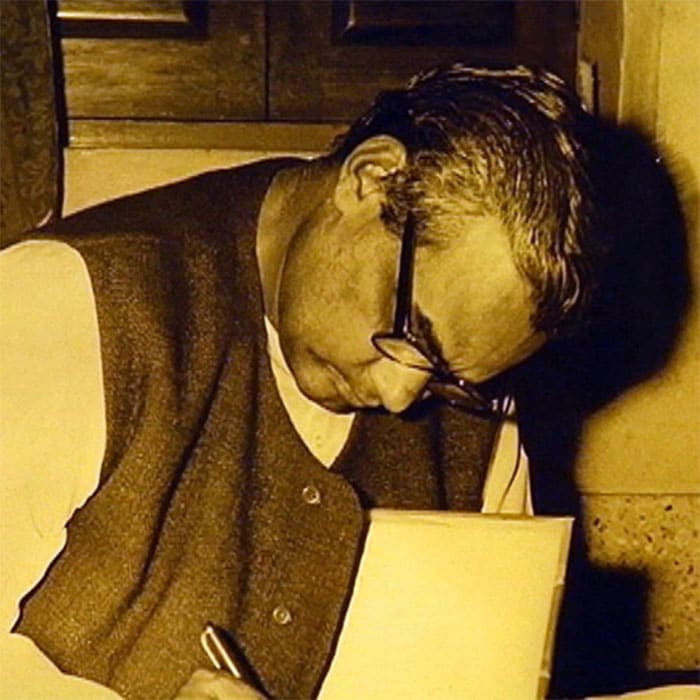 The young Atal Bihari Vajpayee attended Victoria (now Laxmi Bai) College, Gwalior and DAV College, Kanpur, graduating with an M.A in political science.
The young Atal Bihari Vajpayee attended Victoria (now Laxmi Bai) College, Gwalior and DAV College, Kanpur, graduating with an M.A in political science. -
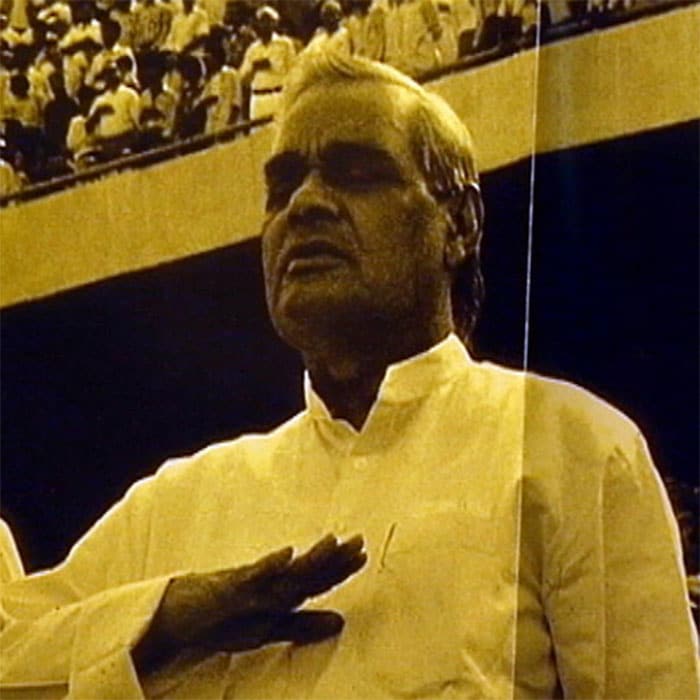 Atal Bihari Vajpayee joined the RSS as a Swayamsevak in 1939 and became a full-time worker in 1947.
Atal Bihari Vajpayee joined the RSS as a Swayamsevak in 1939 and became a full-time worker in 1947. -
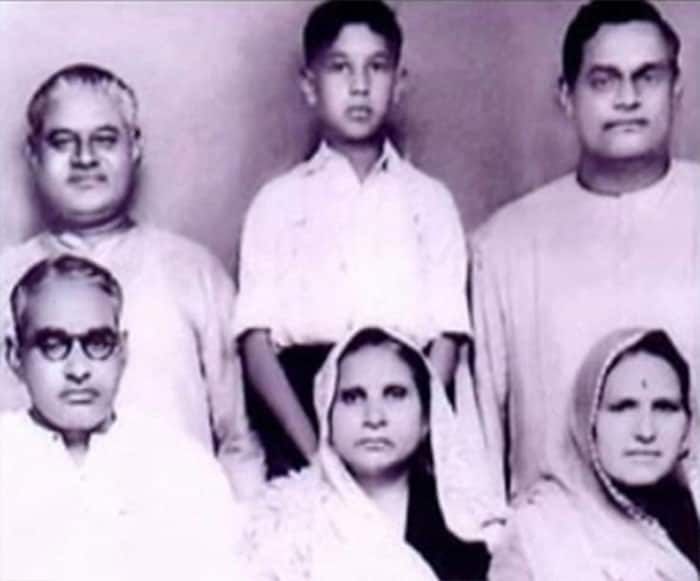 In August 1942, Atal Bihari Vajpayee was briefly jailed along with his elder brother Prem for participating in the anti-British struggle during the Quit India Movement.
In August 1942, Atal Bihari Vajpayee was briefly jailed along with his elder brother Prem for participating in the anti-British struggle during the Quit India Movement. -
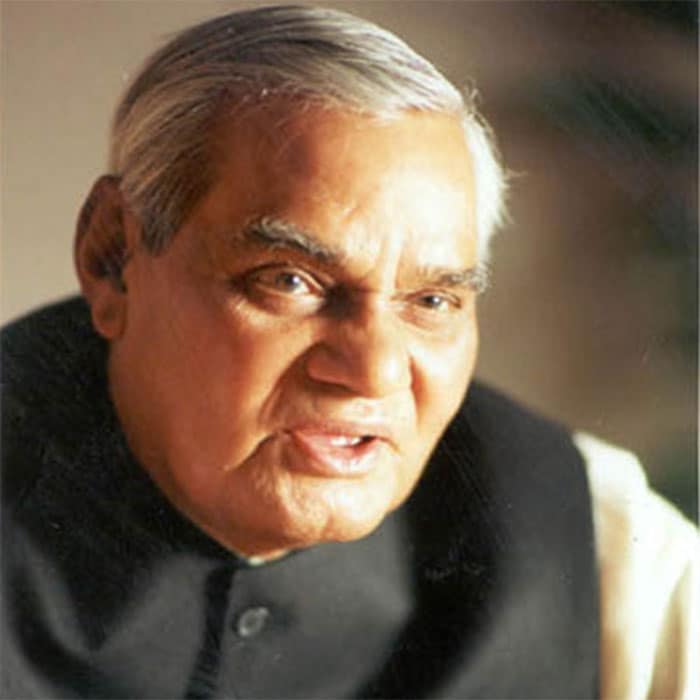 Atal Bihari Vajpayee joined the Bharatiya Jana Sangh in 1951, the predecessor of the BJP and the political arm of the RSS at the time.
Atal Bihari Vajpayee joined the Bharatiya Jana Sangh in 1951, the predecessor of the BJP and the political arm of the RSS at the time. -
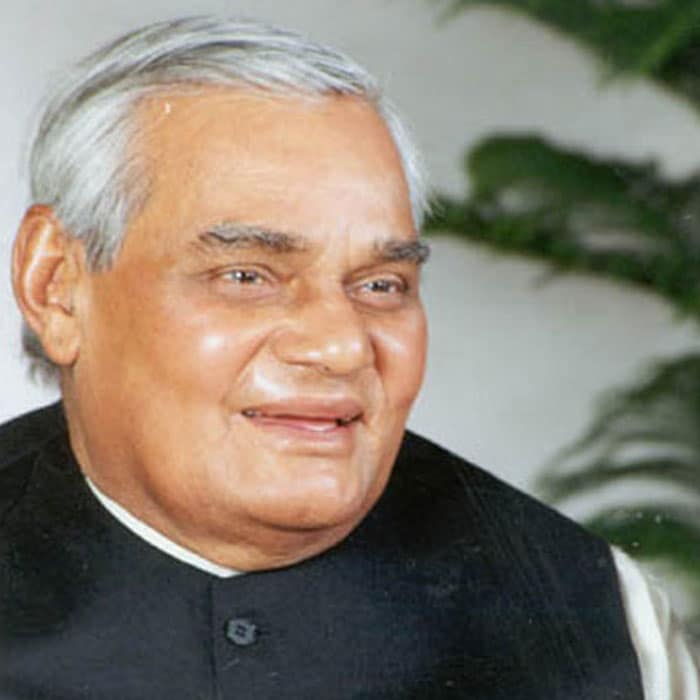 Atal Bihari Vajpayee became a close aide to Shyama Prasad Mookerjee, the founder of the Bharatiya Jana Sangh, the BJP's predecessor. He won his first election to Parliament in 1957.
Atal Bihari Vajpayee became a close aide to Shyama Prasad Mookerjee, the founder of the Bharatiya Jana Sangh, the BJP's predecessor. He won his first election to Parliament in 1957. -
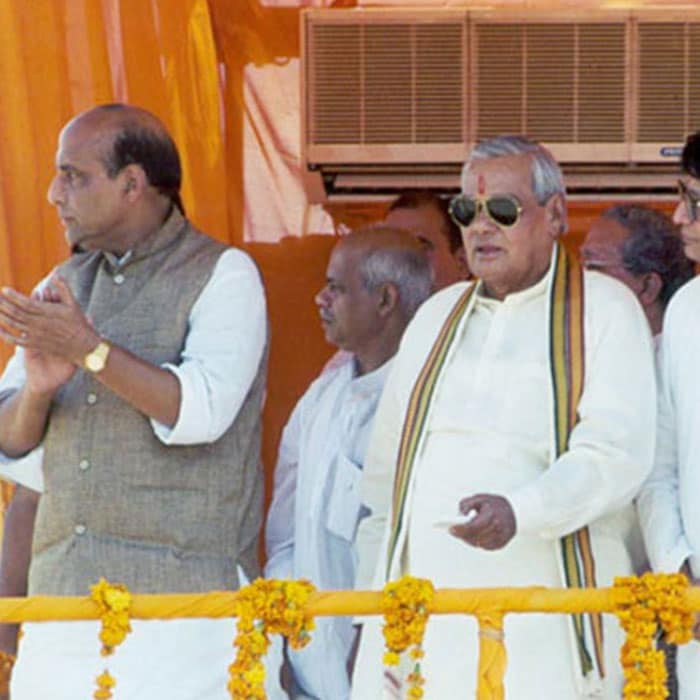 In 1977, Atal Bihari Vajpayee served as the Foreign Minister in the Morarji Desai-Janata Party government. In 1980, the Janata Party broke up. The BJP was among the parties created in the fallout. Mr Vajpayee was its first president.
In 1977, Atal Bihari Vajpayee served as the Foreign Minister in the Morarji Desai-Janata Party government. In 1980, the Janata Party broke up. The BJP was among the parties created in the fallout. Mr Vajpayee was its first president. -
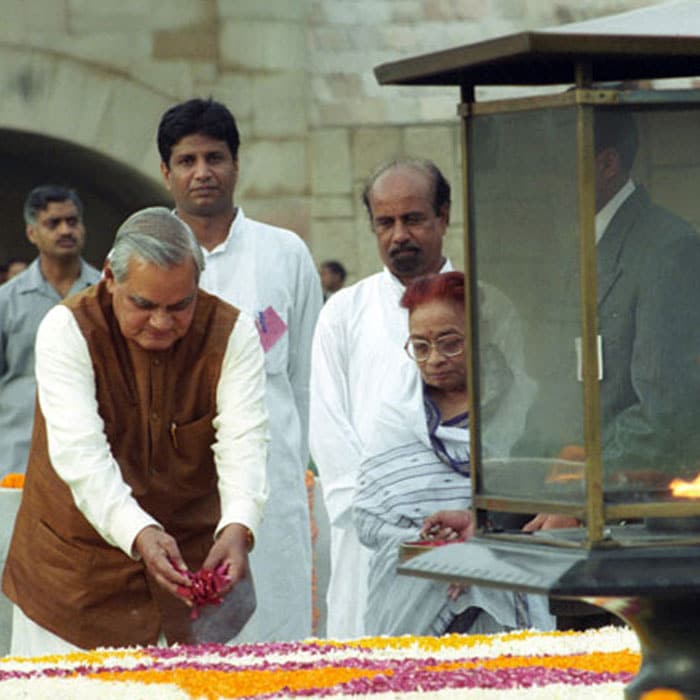 A parliamentarian for over four decades, Atal Bihari Vajpayee was elected nine times to the Lok Sabha and twice to the Rajya Sabha.
A parliamentarian for over four decades, Atal Bihari Vajpayee was elected nine times to the Lok Sabha and twice to the Rajya Sabha. -
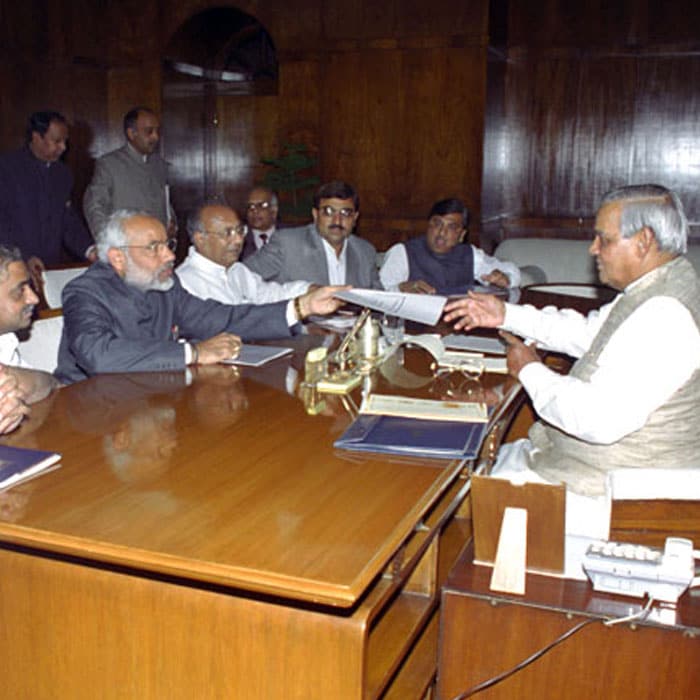 Atal Bihari Vajpayee is the only parliamentarian to have been elected from four different states - Uttar Pradesh, Gujarat, Madhya Pradesh and Delhi.
Atal Bihari Vajpayee is the only parliamentarian to have been elected from four different states - Uttar Pradesh, Gujarat, Madhya Pradesh and Delhi. -
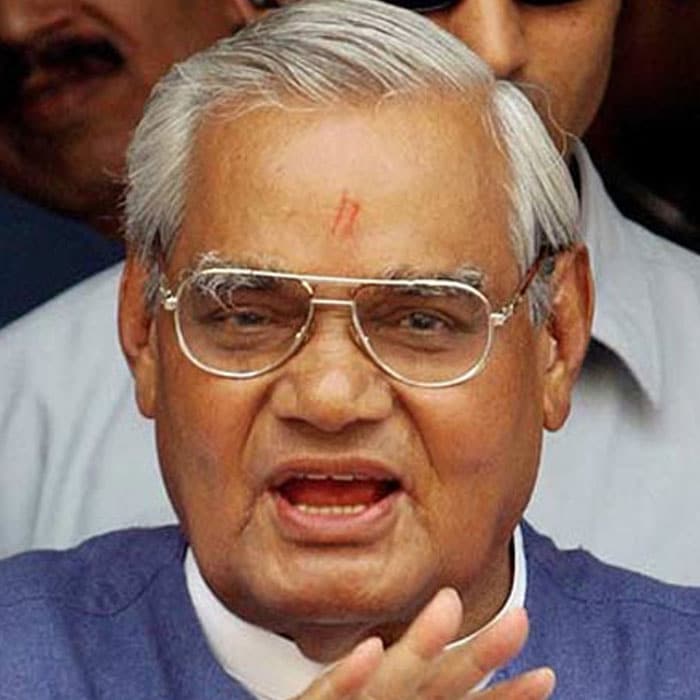 Atal Bihari Vajpayee first became Prime Minister in 1996 after four decades in opposition. He resigned after 13 days with the BJP failing to muster enough support from other parties to show a majority.
Atal Bihari Vajpayee first became Prime Minister in 1996 after four decades in opposition. He resigned after 13 days with the BJP failing to muster enough support from other parties to show a majority. -
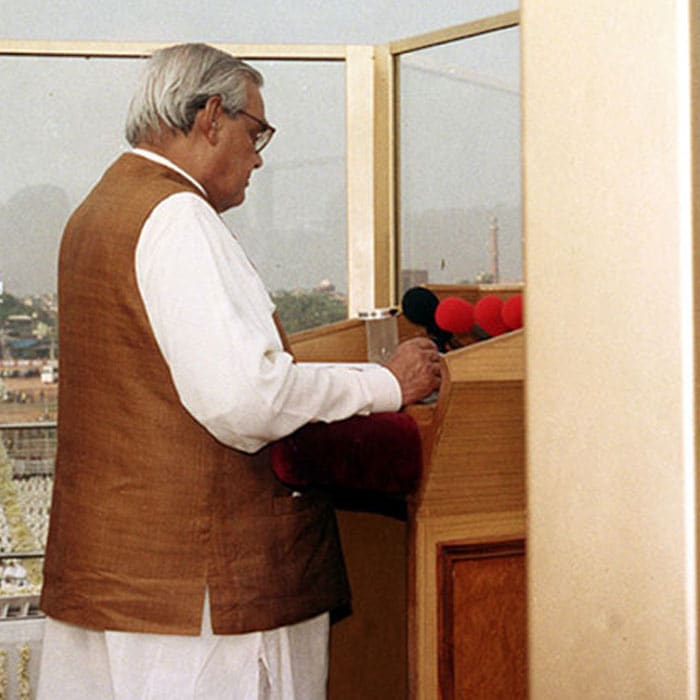 In 1998, Mr Vajpayee became Prime Minister for a second time, leading the newly formed National Democratic Alliance, made up by the BJP and regional parties. 13 months later, he had to resign again after the AIADMK withdrew support.
In 1998, Mr Vajpayee became Prime Minister for a second time, leading the newly formed National Democratic Alliance, made up by the BJP and regional parties. 13 months later, he had to resign again after the AIADMK withdrew support. -
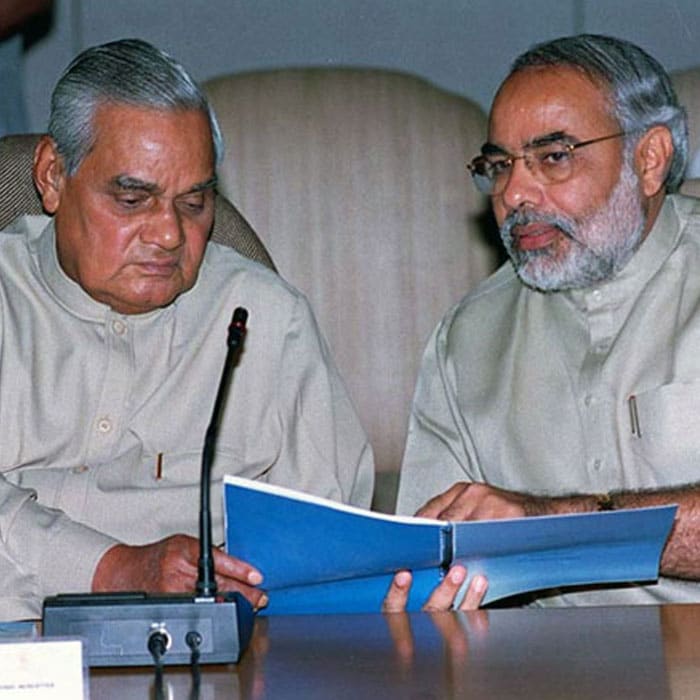 In 1999, elections were held again and this time the NDA won with a larger majority. Atal Bihari Vajpayee became Prime Minister again, this time till 2004.
In 1999, elections were held again and this time the NDA won with a larger majority. Atal Bihari Vajpayee became Prime Minister again, this time till 2004. -
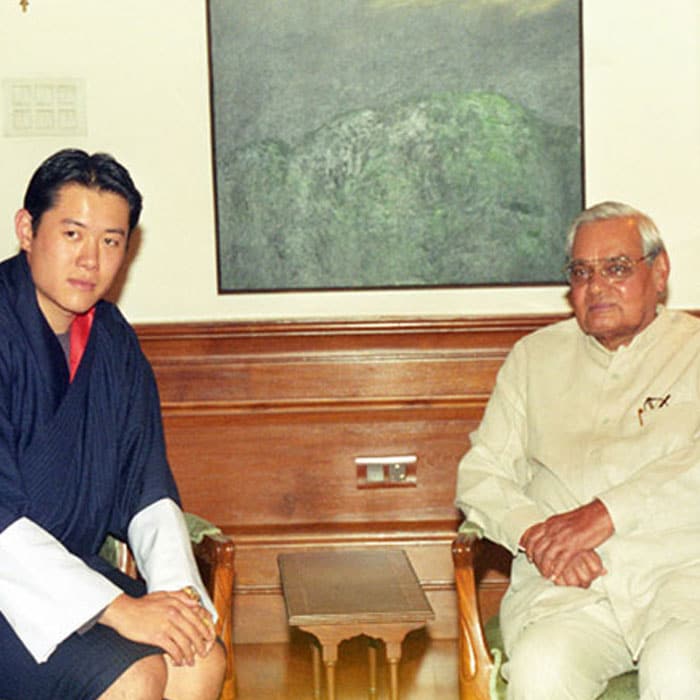 While he held office, Mr Vajpayee introduced several economic reforms and development projects, including the National Highway Development Project.
While he held office, Mr Vajpayee introduced several economic reforms and development projects, including the National Highway Development Project. -
 On May 11, 1998, Prime Minister Atal Bihari Vajpayee convened a press conference to declare India a full-fledged nuclear state after successful tests at Pokhran.
On May 11, 1998, Prime Minister Atal Bihari Vajpayee convened a press conference to declare India a full-fledged nuclear state after successful tests at Pokhran. -
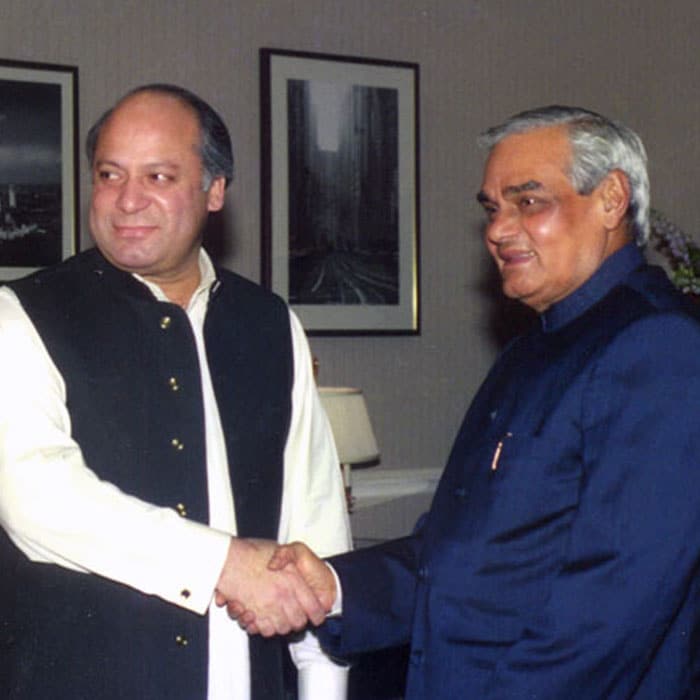 Atal Bihari Vajpayee's stint as PM also saw some testing times - there was the Kargil conflict, the hijack of Indian Airlines flight IC 814 and the 2001 attack on Parliament.
Atal Bihari Vajpayee's stint as PM also saw some testing times - there was the Kargil conflict, the hijack of Indian Airlines flight IC 814 and the 2001 attack on Parliament. -
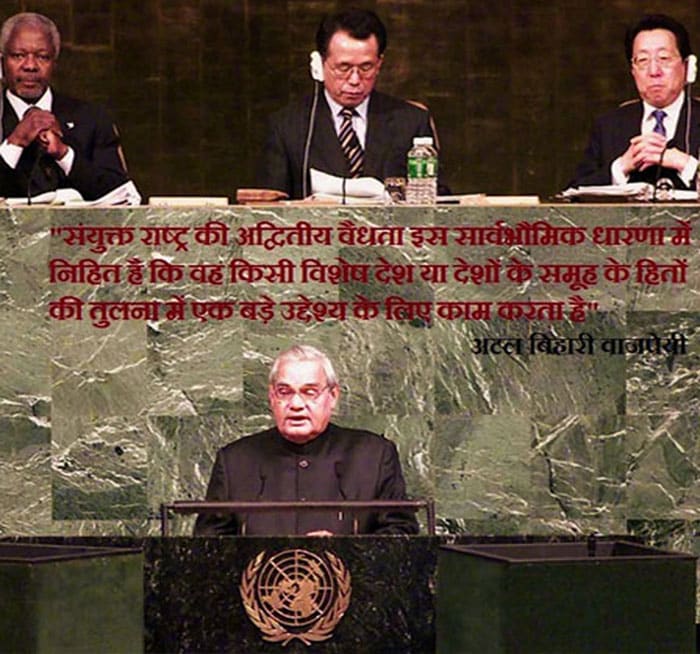 Mr Vajpayee was a feted orator. He was the first external affairs minister to deliver a speech in Hindi at the UN General Assembly, effectively raised India's stand on key issues like nuclear disarmament, state-sponsored terrorism and reforms at the world body.
Mr Vajpayee was a feted orator. He was the first external affairs minister to deliver a speech in Hindi at the UN General Assembly, effectively raised India's stand on key issues like nuclear disarmament, state-sponsored terrorism and reforms at the world body. -
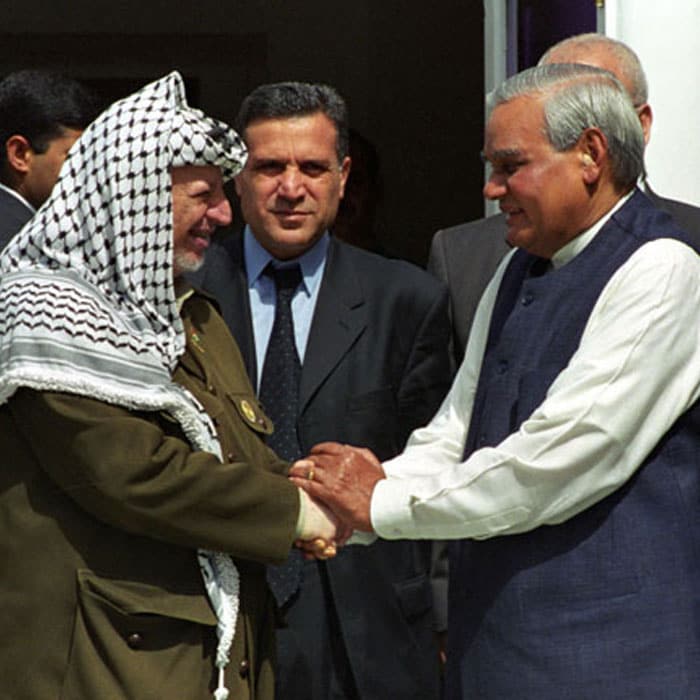 Mr Vajpayee received the Padma Vibhushan in 1992 in recognition of his services to the nation. He also received the Lokmanya Tilak Puraskar and the Best Parliamentarian Award in 1994.
Mr Vajpayee received the Padma Vibhushan in 1992 in recognition of his services to the nation. He also received the Lokmanya Tilak Puraskar and the Best Parliamentarian Award in 1994. -
.jpg) Atal Bihari Vajpayee was conferred India's highest civilian honour, the Bharat Ratna, by the President of India in 2015.
Atal Bihari Vajpayee was conferred India's highest civilian honour, the Bharat Ratna, by the President of India in 2015.
Advertisement
Advertisement
Advertisement
Advertisement
